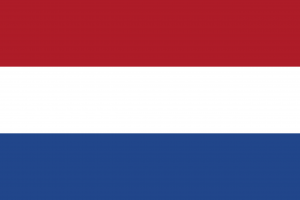Language/Dutch/Vocabulary/Health
Hi Dutch learners! 😊
In this lesson, we will cover important vocabulary related to health in Dutch. It's essential to be able to communicate your health concerns to medical professionals and understand their responses. Additionally, we will talk about Dutch healthcare and cultural aspects related to health. Make sure to stick until the end for cultural insights.
Don't miss the chance to check out these pages as you wrap up this lesson: How to Say Hello & Animals.
Basic vocabulary[edit | edit source]
We will start with basic vocabulary that will help you communicate your health concerns to medical professionals:
| Dutch | Pronunciation | English |
|---|---|---|
| de dokter | duh dock-tur | doctor (generic) |
| de tandarts | duh tund-arts | dentist |
| de ziekenhuis | duh zie-ken-howss | hospital |
| de apotheek | duh ah-poh-take | pharmacy |
| de verpleegkundige | duh ver-playg-kun-dih-juh | nurse |
| de pijn | duh pine | pain |
| de hoest | duh host | cough |
| de koorts | duh course | fever |
| de hoofdpijn | duh hofd-pine | headache |
| de buikpijn | duh boik-pine | stomachache |
Let's put this vocabulary into practice through a dialogue:
- Person 1: Ik heb hoofdpijn. (I have a headache.)
- Person 2: Hoe lang heb je al hoofdpijn? (How long have you had a headache?)
- Person 1: Sinds gisteren. (Since yesterday.)
- Person 2: Je moet veel water drinken. (You should drink a lot of water.)
- Person 1: Bedankt! (Thank you!)
Symptoms[edit | edit source]
Now that you know the basic vocabulary, let's dive deeper into some common symptoms:
| Dutch | Pronunciation | English |
|---|---|---|
| de misselijkheid | duh miss-uh-lig-kheid | nausea |
| de duizeligheid | duh dye-zuh-lig-kheid | dizziness |
| de uitslag | duh eye-ts-lach | rash |
| de bloeding | duh blu-ding | bleeding |
| de brandwond | duh brand-wund | burn (injury) |
Let's see these words in context:
- Person 1: Ik heb last van misselijkheid. (I am experiencing nausea.)
- Person 2: Dat kan duiden op een maaginfectie. (That could indicate a stomach infection.)
- Person 1: Wat kan ik eraan doen? (What can I do about it?)
- Person 2: Rust nemen en veel water drinken. Als het aanhoudt, ga dan langs de dokter. (Take rest and drink a lot of water. If it persists, go to the doctor.)
Medical conditions[edit | edit source]
In addition to symptoms, it's essential to know vocabulary related to medical conditions:
| Dutch | Pronunciation | English |
|---|---|---|
| diabetes | dee-uh-beet-iz | diabetes |
| de hartaanval | duh hart-aan-val | heart attack |
| de kanker | duh kun-kur | cancer |
| de artritis | duh art-ree-tis | arthritis |
| de infectie | duh in-fek-tie | infection |
Let's use this vocabulary in another dialogue:
- Person 1: Ik ben gediagnosticeerd met diabetes. (I have been diagnosed with diabetes.)
- Person 2: Dat spijt me te horen. (I am sorry to hear that.)
- Person 1: Ik moet mijn dieet en lichaamsbeweging aanpassen. (I need to adjust my diet and exercise.)
- Person 2: Dat is een goede stap voorwaarts. (That is a good step forward.)
Dutch healthcare[edit | edit source]
The Netherlands has a public healthcare system, which provides healthcare to all Dutch residents. The healthcare system is funded by taxes and mandatory health insurance contributions. Dutch healthcare is of high quality, and hospitals use modern technology.
Primary care is provided by general practitioners (GPs), who serve as gatekeepers to specialized care. Patients can only access specialized care with a referral from a GP. Dental care is provided by dentists and is partially covered by health insurance.
In emergencies, dial 112, and an ambulance will arrive to take you to the hospital. Dutch hospitals use a triage system, where patients are treated based on the severity of their condition.
Cultural information[edit | edit source]
Did you know that Dutch people are avid cyclists and often use bicycles as a mode of transportation? Cycling is not only a popular way of commuting but also a leisure activity. The Netherlands also has an excellent infrastructure of cycling paths, which makes cycling safe and enjoyable.
Additionally, it's fascinating to note that Dutch healthcare professionals tend to prescribe fewer medications and prefer a more holistic approach to healthcare. This approach includes lifestyle changes such as a healthy diet and regular exercise.
As you continue to learn Dutch, remember to incorporate cultural insights into your language learning journey.
To improve your Dutch Vocabulary, you can also use the Polyglot Club website. Find native speakers and ask them any questions!
➡ If you have any questions, please ask them in the comments section below.
➡ Feel free to edit this wiki page if you think it can be improved. 😎
Videos[edit | edit source]
Dutch Medical System | Healthcare in The Netherlands - YouTube[edit | edit source]
Other Lessons[edit | edit source]
- Geography
- Bedroom
- Things in Dutch
- Say No
- Food
- Animal
- How to Say Hello
- Food in Dutch
- Verbs in Dutch
- Resources
Sources[edit | edit source]
- Translation, validation, and norming of the Dutch language version ...
- Your #1 Comprehensive Guide To Health Vocabulary In Dutch ...
- Validation of the Dutch language version of the Safety Attitudes ...

